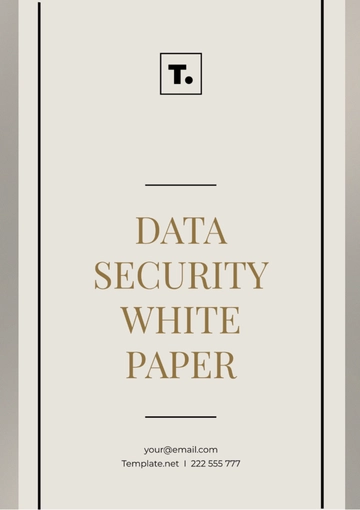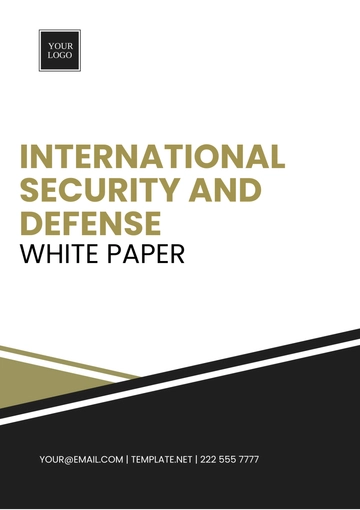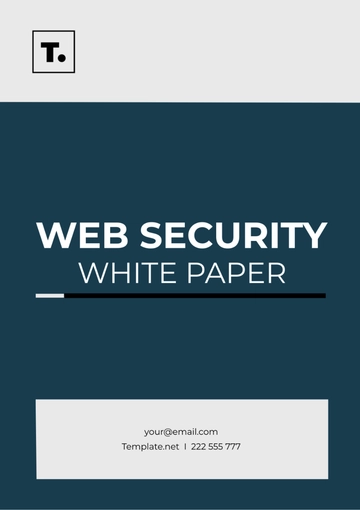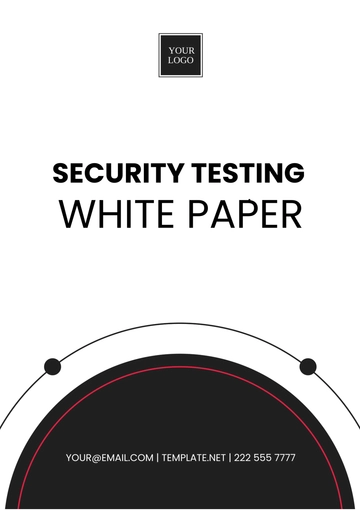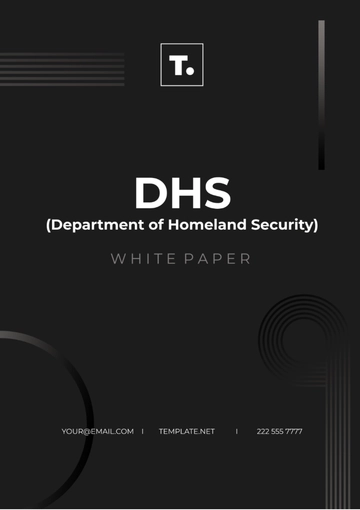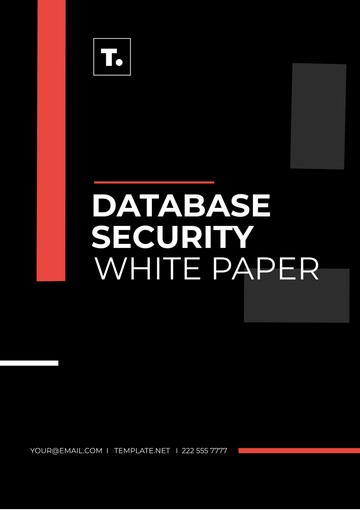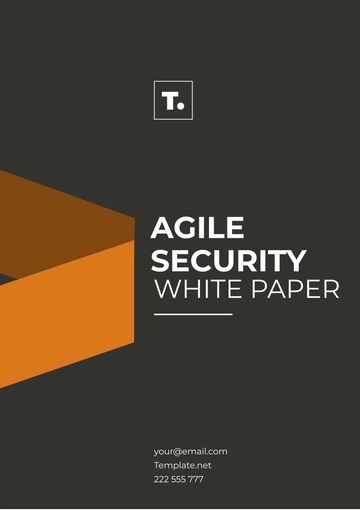Free Air Force White Paper

Enhancing Air Force Cybersecurity Readiness
Author: [YOUR NAME]
Department: Space Operations Command, United States Air Force
Date: August 12, 2052

I. Introduction
The Space Operations Command of the United States Air Force presents this white paper to address the critical issue of cybersecurity threats in space-based operations. This document provides a comprehensive analysis, insights, and recommendations on strategic and operational matters impacting the Air Force concerning cybersecurity vulnerabilities in satellite systems.
II. Executive Summary
This white paper identifies significant vulnerabilities in satellite communication systems, highlighting the need for robust cybersecurity protocols. Key recommendations include enhancing encryption standards and increasing international cooperation to secure space-based assets. The proposed actions will strengthen overall mission readiness and ensure national security in the face of evolving cyber threats.
III. Background
A. Historical Context
Cybersecurity in space operations has evolved significantly since the early 21st century when satellites became essential to military operations. The increased reliance on space-based systems introduced new vulnerabilities that adversaries have sought to exploit.
B. Current Status
As of 2052, the Air Force faces an increasing number of cyberattacks targeting satellite networks, with threats becoming more sophisticated. Recent developments have underscored the urgent need for updated cybersecurity protocols to protect critical space infrastructure.
IV. Analysis
A. Strategic Implications
Cyber threats to satellite systems pose significant risks to national security, potentially disrupting communications, intelligence gathering, and missile defense operations. The Air Force must consider the long-term impact on force readiness and global stability if these threats are not addressed.
B. Operational Challenges
Operationally, defending space-based assets from cyberattacks requires advanced technical capabilities and coordination across multiple domains. The logistics of maintaining secure communications and data integrity amidst increasing cyber threats present a considerable challenge to the Air Force’s global operations.
V. Recommendations
A. Policy Recommendations
To mitigate cybersecurity risks, it is recommended that the Air Force adopt new encryption standards and mandate rigorous cybersecurity protocols for all space-based assets. Additionally, enhancing cooperation with international partners on cybersecurity policies will strengthen global defense capabilities.
B. Operational Solutions
At an operational level, the Air Force should implement advanced AI-driven monitoring systems to detect and neutralize cyber threats in real time. Training personnel in cybersecurity best practices and establishing rapid-response cyber defense units are also critical measures to improve resilience.
VI. Conclusion
Addressing the cybersecurity vulnerabilities in space-based operations is essential for maintaining national security and mission effectiveness. Implementing the recommendations outlined in this paper will ensure the continued success and readiness of the United States Air Force in the evolving digital landscape.
VII. Appendices
A. Glossary
AI: Artificial Intelligence
Encryption: A method of securing data by converting it into a code to prevent unauthorized access
Satellite Communication (SATCOM): The use of satellite technology to transmit communication signals
- 100% Customizable, free editor
- Access 1 Million+ Templates, photo’s & graphics
- Download or share as a template
- Click and replace photos, graphics, text, backgrounds
- Resize, crop, AI write & more
- Access advanced editor
Introducing the Air Force White Paper Template by Template.net: your mission-ready solution for crafting precise and impactful documents. This editable and customizable template ensures seamless adaptation to your strategic objectives. With precision editing capabilities in our Ai Editor Tool, you can tailor your content with military-grade precision. Elevate your reports and briefing papers to the next level with this indispensable tool.

